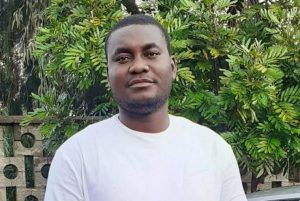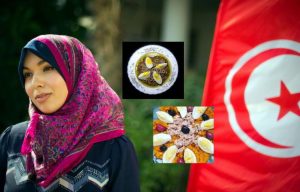A very hectic and exciting life, in a wide range of areas. Committed to various forms of human endeavour. Fond of interacting communication among young people. Engaged in development projects and human promotion programmes. And much more. Always with a single intent: to be a herald of brotherhood among people. Brother Friedbert Tremmel, from Germany, tells us his story.
I was born in a village in the southwest of Germany in October 1957. At the age of 11 years, I joined a missionary group in our parish, which was regularly visited and animated by some Comboni Missionary Brothers. After my primary education, I trained to become an electrician. With the professional certificate in my hands, I knocked at the door of the Postulancy of the Comboni Missionary in Ellwangen. I still remember that day of May 1977 as if it were yesterday. The door opened and I walked resolutely through the threshold. A new life was thrown open in front of me: the life of a Comboni Brother.
We were a group of seven postulants for the brotherhood. In May 1980, four of us entered the novitiate, the two-year-long second step of the basic formation of our institute. On 25th May 1980, I took my first vows. In September, I went back to school for further studies until July 1983. The superiors wanted me to become a youth and social worker. In the 1980s, Comboni Missionaries had still three minor seminaries in their German-speaking Province. So, I was asked to be an educator and, later, the director of the formation house the Institute had in Neumarkt, in the north of Bavaria. On first May 1988, I made my final religious profession. I remained in Neumarkt Comboni House for seven years then I moved to Graz, in Austria.
In 1995 I went to Kenya, where I was appointed to the Comboni Polytechnic at Gilgil. In Gilgil Polytechnic, I was the deputy head of the electrical department and the manager of the hostel, which housed 170 young trainees.
In May 1998, when the technical school was handed over to Nakuru Diocese, I was assigned to Kacheliba mission, in the northeast of Kenya, among the Pokot. Kacheliba is an area of first evangelisation. Nevertheless, it was there that I met strong Christians, who confessed their faith despite all the hardships of daily life. “Mungu yuko!”(“God is there”), was the usual response I received when I asked people about their struggles and future.
In 2001, I went for my sabbatical year. I spent that year in Johannesburg, South Africa, with 13 other Comboni missionaries. It was a great time of rest and spiritual refreshment, a blessed time to focus on comprehensive renewing and re-equipping for long-term ministry.
In September 2002, I was back in Kenya, assigned to the Amakuriat mission, 120 km further northwest of Kacheliba. For seven years, I was in charge of various and, at times, demanding works and enterprises. I was responsible for the many projects of the parish: sponsorship, school feeding programme, building and renovation of schools and chapels… On top of it all, I had to manage the financial administration of the parish and of the projects.
There are two projects I want to mention among the many I carried out in those years: the building of the new parish church, dedicated to Mary, Mother of Peace, and the construction of the St. Comboni Amakuriat Secondary School, a boarding school for boys. I did my very best to make people proud of them.
Those were difficult, tough, even trying years. But they were also full of joy and a sense of fulfilment. I had a good team of workers and collaborators. I really felt the trust and the love local people had in and for me. Even today, ten years later, I am still in contact with many of those Christians. What I admired most was their perseverance and their strong confidence in the loving care and providence of God, despite the many harassments they are victim of, and in the face of the negligence on the part of the local politicians that made them suffer tremendously.
In April 2009, I went back to Germany. My new field of work was that of missionary animation and vocation promotion. I have to confess that in Germany, despite all the challenges coming from lack of faith, secularism, materialism and generalised religious and cultural confusion, I still met very generous people with deep faith and trust in God.
At the beginning of 2017, I was in Rome for a six-month course at the Pontifical University of Saint Thomas Aquinas. In July, I was in Nairobi, at the International Comboni Brothers Centre, where, even at present, together with a confrere from Togo, I am helping young men to become Comboni missionaries. The lively community is made up of 17 confrères from eight different countries of three different continents. An international and intercultural community, indeed.
Though over 60, I am still enjoying every minute of my life today, I would say, with greater intensity. Because I am giving my contribution to the realisation of the dream of our founder, St. Daniel Comboni: “One day, Africa will be evangelised by Africans”.





